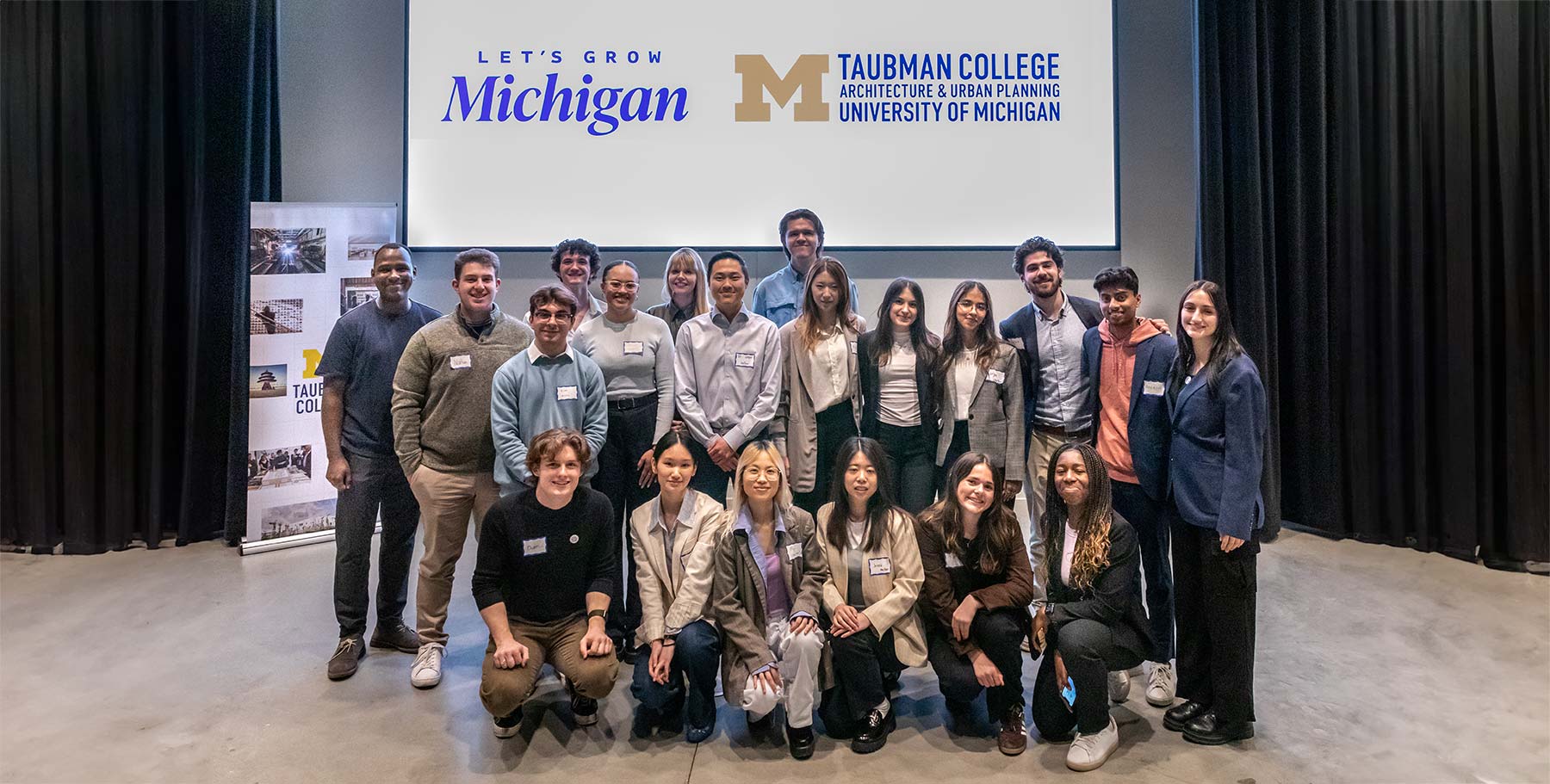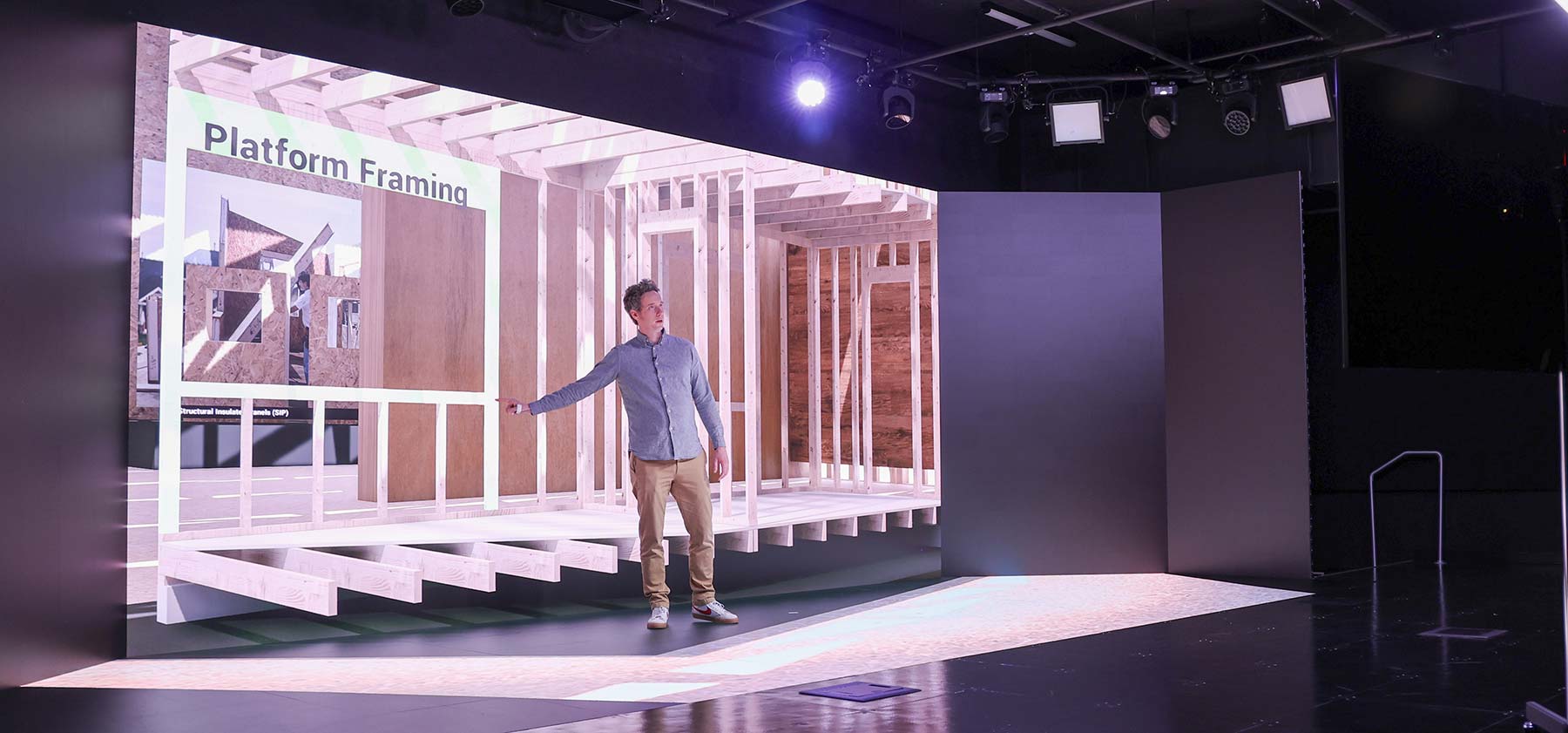POWER Conference hosts 28 international speakers to discuss present predicaments in architecture and urban planning
POWER will inaugurate the first of our new series of conferences exploring Present Predicaments in urban planning and architecture next Friday, Oct. 7, 2011, at Rackham Auditorium. Doors open at 8 a.m. Breakfast and lunch will be served.
This conference will bring together an interdisciplinary group of thinkers and practitioners to explore the relationship between planning, architecture and the power structures that shape our environments. The conference will bring designers, architects, planners, writers and theoreticians, together with developers, government officials, as well as planning and design advocates. Guided by members of our faculty, our speakers will provoke debates and explore questions such as who does architecture and urban planning represent, who do they empower? What forces enable planning and architecture to impact culture and serve as catalyst for change?
The conference is organized around the following topic sessions to be addressed by speakers and a faculty respondent(s):
Power Alliances:
The landscape of alliances is an increasingly malleable yet encompassing one. The organization of practice is readily modified beyond the conventional framework of patrons and designers, while the roles of the state, institutions, and corporations consistently shift, merge, and divide in an extraordinary capacity. This session examines architecture’s engagement with authority and capital, and its potential as an active agency. Exploring the challenges and risks as well as the productivity and efficacy in the deployment of power, the panel attempts to elicit views on the utility of alliance and the necessity of a measured autonomy. In an era of scarcity and transformation, can architecture shape the responsible form of power?
Faculty moderator and respondents: Lecturers Nahyun Hwang and David Eugin Moon
Speakers: Jay Berman; Gordon Gill; Brandon Harwick / Scott Walzak; Jeffrey Inaba; David Nieh; Julie Snow; Dan Wood
Powerful Advocacy:
Architecture and urban planning are always looking for friends. As fields of study they are interdisciplinary and as professions they are collaborative. The public endorsement, financial backing, and facilitation that comes from academic institutions, government agencies, non-profit organizations and the media are pivotal in architects’ and planners’ ability to effect change. Unpacking these various modes of support reveals complexities in their form, their motivations, their ideologies, and their beneficiaries. What are the most effective venues for advocacy and who is the target audience? Who benefits the most: individuals, institutions, or disciplines-at-large? What sorts of design are worthy of promotion? Through a consideration of the implications inherent in speaking for, investing in, and educating others, this session explores advocacy as a means of empowerment.
Faculty moderator and respondent: Lecturer Ellie Abrons
Speakers: Katharine DeShaw; Aaron Dworkin; Jason Schupbach; Leslie Shepherd; Matthew Yglesias
Power Points:
In the wake of the political developments of the Arab Spring, it is difficult to dispute the fact that information is power. And yet lurking behind information’s innocuous veneer – a façade that projects the unbiased imparting of knowledge – is the reality of its social construction. Information is only ever as reliable as the filters through which we receive it – its vehicles of delivery and formats of dissemination. Contemplating architecture’s role in the filtering and prioritizing of information, Rem Koolhaas writes: “It [architecture] embodies the lingering hope – or the vague memory of hope – that shape, form, coherence could be imposed on the violent surf of information that washes over us daily. Maybe architecture doesn’t have to be stupid after all. Liberated from the obligation to construct, it can become a way of thinking about anything – a discipline that represents relationships, proportions, connections, effects, the diagram of everything.” The panel will consider various formats for the dissemination of architectural and urban information. It will put formats (polemical journals, mainstream magazines, newspapers, zines, blogs, research installations, exhibitions, monographs, pamphlets…) into dialogue with the kinds of discourse they sustain (criticism, theory, polemical debate, information design…) and the institutions that support them (research laboratories, think tanks, academic institutions, publishing houses…), and question the respective agency of each. Does power reside in the factuality and intelligibility of information itself, or in the ability to spin it, frame it, filter it, and disseminate it?
Faculty moderator and respondent: Assistant Professor Amy Kulper
Speakers: Cynthia Davidson; Keller Easterling; Roger Sherman; Michael Sorkin
Planning for Empowerment:
As the world continues to weather profound economic crisis, the gap between the haves and the have-nots has become ever wider. Particularly in cities which contain a disproportionate number of low-income people, this situation has made planning for social justice increasingly challenging. This session considers various ways to help remove barriers preventing the empowerment of those who have little or no power. Possible ways to do this include creating deliberate strategies to carry out progressive policies in municipal and state governments, or enabling, through planning and design services, community-based efforts to improve specific neighborhoods. Other useful approaches may include facilitating the efforts of working-class entrepreneurs such as street vendors and small-shop owners, or designing affordable solutions to problems such as lack of access to housing, transportation, jobs, or other critical needs. This session will consider the possibilities, offer examples of previous efforts, and discuss impediments to future success.
Faculty Moderator and Respondent: Professor June M. Thomas
Speakers: Pierre Clavel, Norman Krumholz, Alfonso Morales, Douglas Gauthier
Design Empowerment:
Rather than being purely reactionary, effective grassroots tactics are characterized by their cunning ability to exploit the intrinsic assets of a group in order to infiltrate and influence dominating structures. With great tact, they creatively transform parallel strengths into targeted authority and empower their base to produce change. How is contemporary design practice, abundant with its own depth of knowledge and particular expertise – its own strength – empowered to challenge today’s dominating structures? What are the relevant discourses, roles, and manifestations that designers employ? What must designers now understand of external structures to effectively target their intrinsic abilities? Who, in turn, do these focused abilities benefit, create, profit? And what is lost in the process of narrow targeting? This session invites a wide array of design practitioners to discuss their specific tact(ics) when seeking to empower through design.
Faculty moderator and respondent: Assistant Professor Anca Trandafirescu
Speakers: Tobias Armborst; Sarah Dunn; Edouard Francois; Hilary Hoeber; Kim Karlsrud / Daniel Phillips; Marion Weiss
To see more event information and to register: taubmancollege.umich.edu/power




